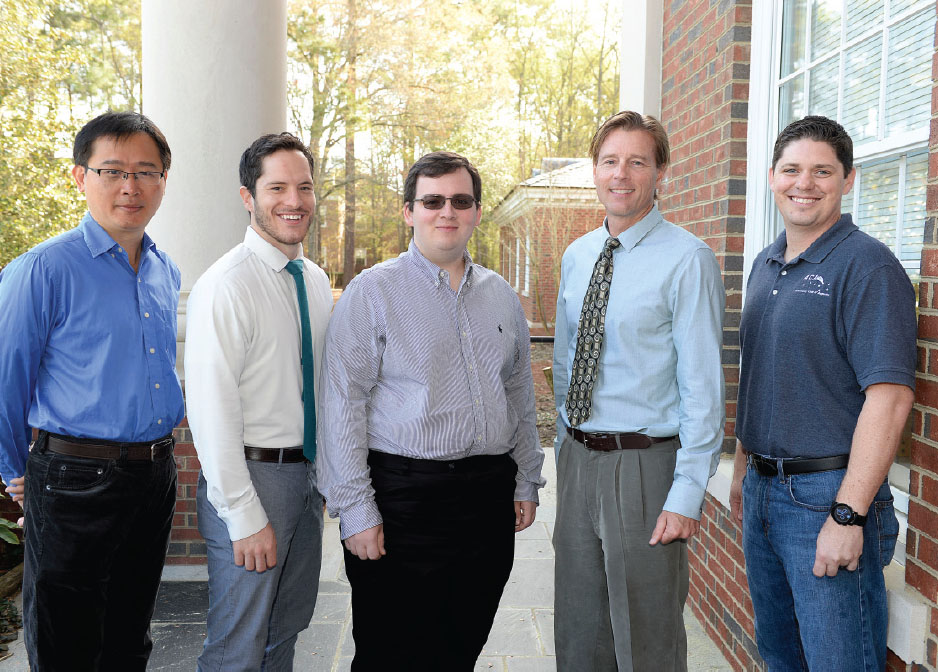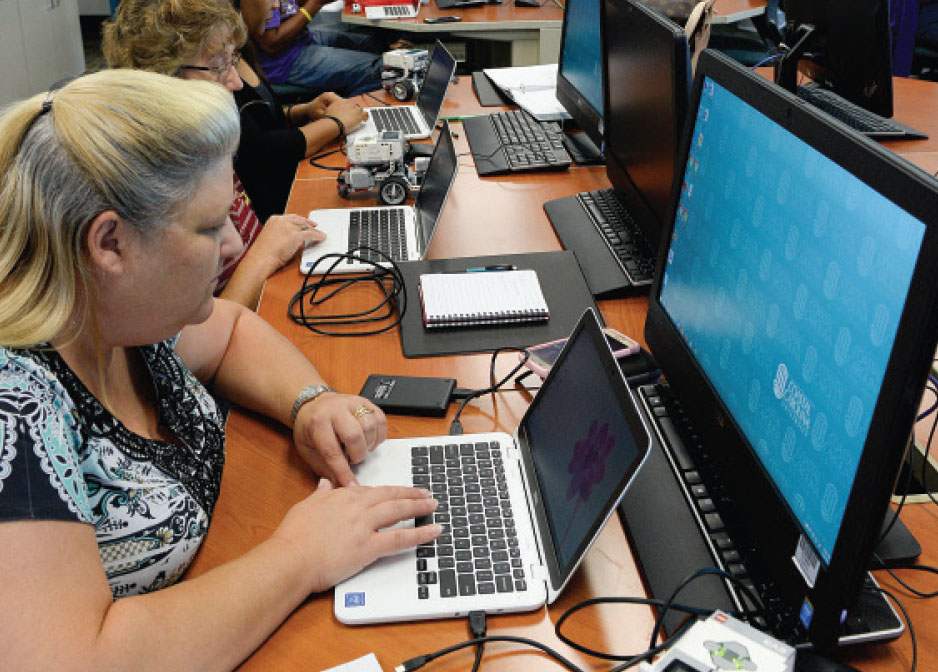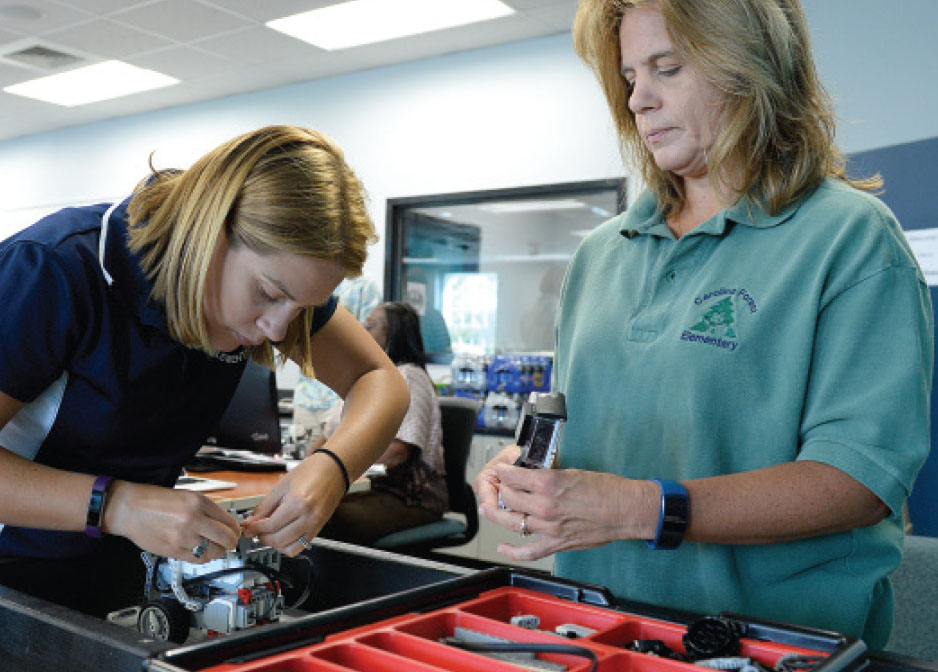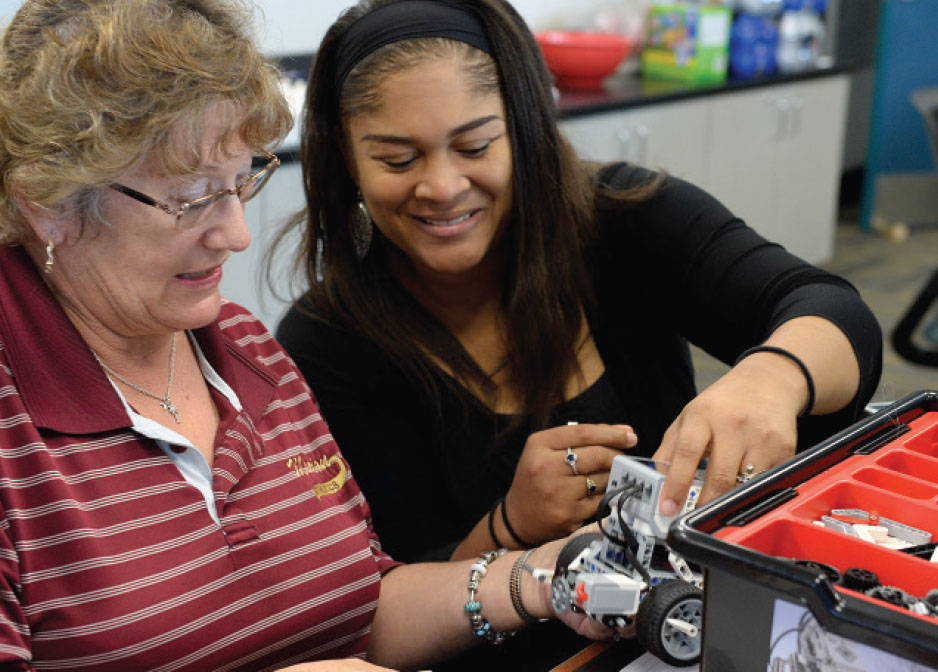CCU professors train middle school teachers in robotics
A team of Coastal Carolina University education and science professors are leading a new initiative to train middle school teachers from Marion County in robotics as part of the county’s math and science curriculum, thanks to a $150,000 grant from the South Carolina Commission on Higher Education.
The purpose of the 18-month project is to integrate technology into the curriculum of a high-needs category school district, advancing the state mandate to provide more instruction in science, technology, engineering and math (STEM). The centerpiece of the initiative is a set of five-day workshops held in the summers of 2016 and 2017.

Nineteen Marion County middle school teachers participated in the first workshop in July, receiving instruction from our CCU team in the basics of robotics. Each of the teachers received a LEGO robotics kit and a Dell computer, and they are required to develop a minimum of two lesson plans related to their content area in science or math. During the fall, the CCU team members observe the teachers in their classrooms in Marion County.
Only 30 percent of Marion County middle and high school students are scoring at proficient levels for mathematics and only 38 percent for science, according to recent statistics. Only 63 percent of Marion County students graduate from high school. With an 82 percent free and reduced lunch rate and a dropout rate of 6.8 percent, the county school district falls in the high-needs category. (A district is considered high needs when at least 45 percent of its students qualify for free or reduced lunches.)
“Traditional educational practices involve passive listening in lecture formats, focusing on single answers to questions rather than exploring multiple possibilities,” said Patricia Jones, director of program evaluation and accreditation in CCU’s Spadoni College of Education and team leader of the project. “Robotics provide a more collaborative environment in which students learn to use textbook knowledge to solve hands-on, three-dimensional problems. This experiential approach to learning improves students’ motivation and retention.”
The ultimate aim of the program, according to the CCU team, is to equip teachers to train middle school students to think critically and become engaged in practical problem solving.
Ebony Everette, an eighth-grade science teacher at Johnakin Middle School in Marion, believes the program will help her and her colleagues break away from conventional methods of teaching science. “I can foresee applying what I’m learning in this robotics workshop to teach my students lots of things,” she said, “like manipulating equations and illustrating principles of Kepler’s law and astronomy. It will be knowledge they will never lose, the foundation of what they will take to college.” In addition to Jones, participating CCU faculty members are Louis J. Rubbo, Corey Lee, Joe Winslow, Alex Fegely and Bryan Lemon. Also facilitating the program are Horry County K-12 teachers and CCU alumni Blake Vaught, Brooke Johnson and Diane Sullivan.









